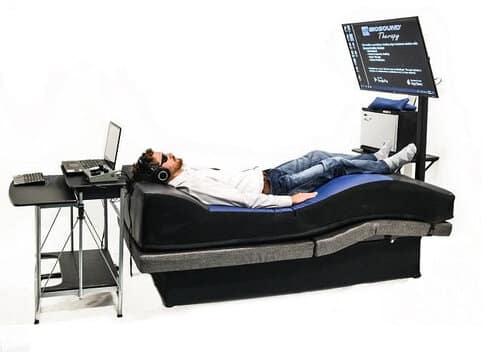Request a Callback
"*" indicates required fields
CBT
In our fast-paced world, mental health and substance abuse issues are becoming increasingly prevalent. Fortunately, there is now a widely recognized therapy that offers a ray of hope for those struggling with these challenges – Cognitive Behavioral Therapy (CBT).
This evidence-based treatment approach has gained immense popularity for its effectiveness in helping individuals overcome issues such as anxiety, depression, and addiction.
CBT is a unique therapy that focuses on the connection between thoughts, feelings, and behaviors. By identifying and challenging negative thought patterns, individuals can learn healthier ways to cope with their emotions and make positive changes in their lives. This therapy is grounded in the belief that changing how we think can directly impact our emotions and behaviors.
What is Cognitive Behavioral Therapy (CBT)?
Cognitive Behavioral Therapy (CBT) is a unique therapy that focuses on the connection between thoughts, feelings, and behaviors. It is based on the idea that our thoughts and beliefs influence our emotions and actions.
By identifying and challenging negative thought patterns, individuals can learn healthier ways to cope with their emotions and make positive changes in their lives. CBT is a time-limited, goal-oriented therapy that aims to help individuals develop practical skills to manage their symptoms and improve their overall well-being.
Effectiveness Of CBT In Treating Mental Health Disorders
- In the treatment of anxiety disorders, CBT helps individuals identify and challenge the irrational thoughts and beliefs that contribute to their anxiety. By learning to recognize and reframe these thoughts, individuals can reduce their anxiety symptoms and regain a sense of control over their lives.
- For individuals suffering from depression, CBT focuses on identifying and changing negative thought patterns that contribute to feelings of sadness and hopelessness. By challenging these negative thoughts and replacing them with more positive and realistic ones, individuals can experience a significant reduction in their depressive symptoms.
- CBT has also been proven effective in the treatment of PTSD, as it helps individuals process traumatic memories and develop healthier coping strategies. Through exposure therapy and cognitive restructuring, individuals can learn to manage their trauma-related symptoms and regain a sense of safety and control.
- In the treatment of eating disorders, CBT helps individuals address the distorted beliefs. By challenging these beliefs and developing healthier coping strategies, individuals can develop a more positive body image and establish a healthier relationship with food.


CBT Techniques And Strategies
CBT utilizes a variety of techniques and strategies to help individuals overcome their challenges and achieve their therapy goals. Two key techniques used in CBT are cognitive restructuring and behavioral activation.
- Cognitive restructuring in CBT
- Behavioral activation in CBT
Cognitive Restructuring In CBT
CBT helps individuals address the underlying thoughts, beliefs, and behaviors that contribute to their substance abuse, and develop healthier coping strategies.
In substance abuse treatment, CBT focuses on helping individuals identify triggers and high-risk situations for substance use. By recognizing these triggers, individuals can develop strategies to avoid or cope with them effectively. CBT also helps individuals challenge the distorted thoughts and beliefs that contribute to their substance abuse and develop more positive and constructive ways to cope with stress and emotions.
CBT for substance abuse often includes relapse prevention techniques. Through the development of coping skills and the creation of a relapse prevention plan, individuals can increase their chances of maintaining long-term recovery.
Behavioral Activation In CBT
While CBT can be highly effective on its own, it is often integrated with other therapeutic approaches to provide a more comprehensive and tailored treatment plan. This integrated approach addresses both the psychological and biological aspects of the individual’s condition, increasing the likelihood of successful treatment outcomes.
CBT can also be integrated with other evidence-based therapies, such as mindfulness-based stress reduction (MBSR) or dialectical behavior therapy (DBT).
These integrative approaches allow individuals to benefit from a combination of techniques and strategies, providing a more holistic and personalized treatment experience.
CBT For Substance Abuse Treatment
If you or a loved one is interested in pursuing Cognitive Behavioral Therapy, it is essential to find a qualified and experienced CBT therapist or program. Here are some steps you can take to find the right fit:
- Research and gather information
- Ask for recommendations
- Check qualifications and credentials
- Schedule a consultation
- Consider logistics and practicalities
Remember, finding the right therapist or program is crucial for a successful therapy experience. Take your time, ask questions, and trust your instincts when making your decision.
The Transformative Potential Of CBT
- While CBT focuses on changing thoughts and behaviors, medication can help alleviate symptoms and provide a foundation for therapy. This combination can be particularly beneficial for individuals with severe mental health or substance abuse issues.
- Mindfulness practices, such as meditation and deep breathing exercises, can help individuals become more aware of their thoughts and emotions. When combined with CBT, it can enhance the effectiveness of therapy by promoting self-awareness and self-compassion.
- Additionally, CBT can be integrated with experiential therapies, such as art therapy or equine therapy. These approaches allow individuals to express themselves through creative outlets or interact with animals.


We believe in Holistic Therapies.

Biosound Therapy
Biosound Therapy is the integration of Biofeedback, Therapeutic Music, sound healing massage, and guided imagery. The guided imagery selections on the Biofeedback Bed are designed to address the guilt, fear, shame and trauma associated as underlying issues for most dealing with addiction. These moving meditations begin with a journey to a completely relaxed state of mind. Then, utilizing a unique echo effect, powerful and positive affirmations are delivered. This combination helps the client overcome those deep rooted, negative patterns of thought and behavior.
- Relieves pain & stress
- Assists with Detoxification Treatment
- Lowers cravings, impulse behavior and racing thoughts
- Lowers anxiety & depression

Equine Psychotherapy
Equine-Assisted Therapy is used to treat patients challenged with everything from drug and alcohol abuse dependency and post-traumatic stress syndrome. The therapy takes advantage of the mental and physical exercise that working with a horse can provide. Equine therapy:
- Helps clients learn to identify and cope with feelings
- Promotes Effective Communication Skills
- Helps Addicts Better Manage Behavior
- Teaches How to Set Boundaries
- Restores Self-Esteem and Self-Worth
*This is an optional, additional therapeutic therapy available after clinical treatment hours.

Massage Therapy
Clients at Relevance receive weekly massage therapy from our Licensed Therapists. Some additional benefits include:
- Release of ‘feel-good’ hormones. According to the American Massage Therapy Association (AMTA), massage helps to increase serotonin and dopamine (feel-good hormones) and decrease cortisol which is related to stress.
- Reduce agitation and anxiety and ease sleep problems.
- Provides a natural, alternative method of healing, free of drugs.
- Helps with the removal of metabolic waste. Therapeutic massage triggers or stimulates the body’s parasympathetic nervous system. This in turn can increase circulation and promote the effectiveness of the lymph system. The lymph system helps to alleviate pain symptoms and is responsible for removing the body’s metabolic waste build-up.
- Provides the client with a connection to their body, and improves or increases body awareness.
Find Your Path To Freedom At Relevance Recovery
The path to sobriety is unique to each individual, and with the abundance of options available today, there is no better time to begin your journey. Evening Intensive outpatient treatment programs in New Jersey offer a combination of flexibility and intensive care that can prepare you for the long-term sobriety you desire. Recovery is within reach. Contact us today to begin your journey to sobriety.
Why Relevance Recovery?
We stand as your dedicated partner in the journey towards mental health and well-being. Our comprehensive platform offers invaluable resources and insights into managing mental health challenges and overcoming substance abuse. Through our award-winning programs, we provide effective strategies for relapse prevention, ensuring a lasting and transformative recovery experience. Join us in paving a path towards a healthier, more fulfilling life.


Get the Help You Need, Now.
Start your journey to substance abuse recovery with us in New Jersey today.




